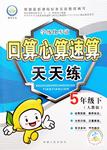题目内容
Manners nowadays in metropolitan cities like London are practically non-existent. It is nothing for a big, strong schoolboy to push an elderly woman aside to take the last remaining seat on the underway or bus.
This question of giving up seats in public transport is much argued about by young men, who say that since women have claimed equality, they no longer deserve to be treated with politeness and that those who go out to work should take their turns in the rat race like anyone else. But women have never claimed to be physically strong as men. Even if it is not agreed, however, the fact remains that courtesy(礼节) should be shown to the old and the sick. Are we really so lost to all ideals of unselfishness that we can sit there indifferently(冷漠地) reading the paper or a book, saying to ourselves, “First come, first served” while a grey-haired woman, a mother with a young child or a cripple(残障者) stands? Yet this is all too often seen.
Older people, tired and impatient from a day’s work, are not always considerate either--far from it. Many arguments break out as the older people push and squeeze(挤) each other to get on buses. One cannot approve this, of course, but one does feel there is just a little more excuse.
It seems urgent, not only that communications in transport should be improved, but also that communication between human beings should be kept smooth and polite. All over cities, it seems that people are too tired and too rushed to be polite. Shop assistants won’t bother to assist; taxi drivers shout at each other as they dash dangerously around corners; bus conductors pull the bell before their desperate passengers have time to get on or off the bus, and so on. It seems to us that it is up to the young to do their small part to stop such lowering of moral standards.
Title: Manners in Metropolitan Cities
Theme | Politeness is1. , especially in large cities. | |
Phenomena and Excuses | Phenomena | Excuses |
Big, strong schoolboys push elderly women aside to 2. on the last remaining seats. |
| |
Young men3. to treat women politely. | Women think they are4. to men, so they should take their turns in the rat race like others. | |
Young people sit indifferently5. while grey-haired women, mothers with 6. and disabled people stand by. | First come, first served. | |
The elderly themselves push each other to get on buses. |
| |
7. | ●Communications in transport are not satisfactory. ●Communication between people doesn’t go 8. and politely. ●People are too 9. and too rushed to care about others. | |
Solution | Young people make an 10. to stop such lowering of moral standards. | |
1.disappearing/non-existent/missing/lacking/lost
2.sit/rest
3.refuse/hate/dislike
4.equal
5.reading
6.children/babies
7.Causes/Analysis
8.smoothly
9.tired
10.effort
【解析】
试题分析:题目主要考查学生从文中提取有效信息的能力,还要注意转换单词的词性。平时应该注意积累短语和固定搭配。
1.Manners nowadays in metropolitan cities like London are practically non-existent.”可知,在伦敦这样的大都市,礼仪已经不复存在,non-existent不存在的,故填disappearing/ non-existent/missing/lacking/lost。
2.a big, strong schoolboy to push an elderly woman aside to take the last remaining seat”可知,学生把老人挤到一边是为了抢剩下的最后一个座位,文中用的短语take the last remaining seat,这里需要使用动词,sit on the last remaining seat坐到最后的座位上,故填sit/rest。
3.since women have claimed equality, they no longer deserve to be treated with politeness”可知,年轻人认为女性争取平等的权利,因此她们不再值得以礼相待,说明年轻人拒绝或不同意礼貌对待女性,故填refuse/hate/dislike。
4.since women have claimed equality”可知,女性要求获得与男性平等的地位,这里需要用形容词作表语,故填equal。
5.we can sit there indifferently(冷漠地) reading the paper or a book”可知,人们冷漠地坐在座位上看书或看报纸,故填reading。
6.a mother with a young child”可知,这里指带小孩的母亲,文中用的单数,这里需要填child的复数形式,故填children/babies。
7.Theme...Phenomena and Excuses...Solution”可知,文章分为主题、现象、原因和结论四个部分,故填Causes/Analysis。
8.communication between human beings should be kept smooth and polite.”可知,人与人之间的交流并不顺畅,这里修饰动词go,用副词,故填smoothly。
9.people are too tired and too rushed to be polite”可知,人们因为疲惫或匆忙而无法顾及他人,故填tired。
10.it is up to the young to do their small part to stop such lowering of moral standards”可知,年轻人应该做好分内之事,停止拉低道德标准的行为,part在此意为“作用,本分”,do one’s part做好分内之事,make an effort to do sth努力做某事,故填effort。
考点:考查提取有效信息;词性转换

 学练快车道口算心算速算天天练系列答案
学练快车道口算心算速算天天练系列答案